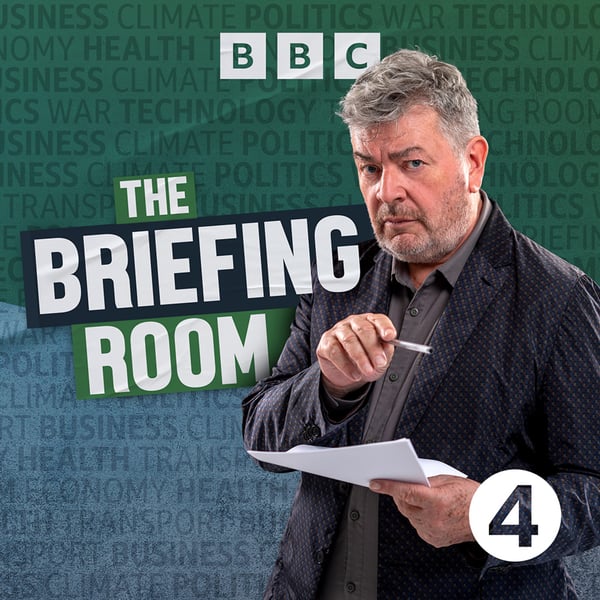Health 3: How far could artificial intelligence transform medicine?
The Briefing Room
BBC
4.8 • 731 Ratings
🗓️ 11 July 2024
⏱️ 37 minutes
🧾️ Download transcript
Summary
Machine learning has come on in leaps and bounds in recent years. Bigger, more powerful computers can crunch ever more amounts of data, analysing complex information just as accurately, it’s claimed, as the best specialists and at speeds humans can never achieve. With the potential to make a significant difference to healthcare - helping to diagnose disease, summarise patients’ medical notes, even predict health conditions years before any symptoms appear. But how long before the potential benefits become a reality? And what are the possible pitfalls? Join David Aaronovitch and a panel of guests to find out.
Guests: Madhumita Murgia, Artificial Intelligence Editor, Financial Times and author of Code Dependent: Living in the Shadow of AI Mihaela van der Schaar, Professor of Machine Learning, Artificial Intelligence and Medicine at Cambridge University Pearse Keane, Consultant ophthalmologist at Moorfields Eye Hospital and a Professor of Artificial Medical Intelligence at UCL Dr Jessica Morley, Post-doctoral researcher at the Digital Ethics Centre, Yale University
Presenter: David Aaronovitch Producers: Sally Abrahams and Rosamund Jones Sound engineers: Dafydd Evans and Neil Churchill Editor: Richard Vadon
Transcript
Click on a timestamp to play from that location
| 0:00.0 | BBC Sounds, Music, radio, podcasts. |
| 0:09.0 | I'm David Ronebitch, welcome to the briefing room where you, me, top experts, |
| 0:13.7 | and a big issue come together and create a synthesis of understanding. |
| 0:18.3 | This is the last of three in our special podcast series, all on the same theme, The Future of Health. |
| 0:25.5 | In the first, we've been exploring scientific advances in cancer, and in the episode after |
| 0:30.2 | that, looking at what appears to be an epidemic of anxiety and depression. |
| 0:35.9 | In this final one, the focus is on artificial intelligence, |
| 0:39.3 | and we're asking to what extent AI could transform medicine. Machine learning is on the |
| 0:45.5 | cusp of revolutionizing our lives. Bigger and more powerful computers can crunch |
| 0:50.2 | impossibly large amounts of data, analysing complex information just as accurately, |
| 0:55.0 | or so we're told, as the best specialists and at speeds humans can never achieve. |
| 1:01.0 | From diagnosis to drug development, the potential advances that are claimed seem huge and exciting. |
| 1:07.0 | But what's the reality? |
| 1:09.0 | And how soon might we substantially benefit from it? |
| 1:12.9 | Step inside the briefing room and together we'll find out. |
| 1:20.4 | First, what is artificial intelligence or AI? |
| 1:24.0 | With me in the briefing room is Madame Miser, |
| 1:26.2 | who's the artificial intelligence editor at the Financial Times, an author of codependent living in the shadow of AI. |
| 1:34.6 | Mademisa Merger, what is artificial intelligence? |
| 1:38.5 | So AI is a statistical software that can find patterns in large amounts of data. And now that data could be |
| 1:46.1 | huge numbers of words, images, it could be video, audio, code, or even DNA, for example. But what |
| 1:54.0 | AI does or AI software is it's trained on this data, so say books or the internet, and then it's |
... |
Please login to see the full transcript.
Disclaimer: The podcast and artwork embedded on this page are from BBC, and are the property of its owner and not affiliated with or endorsed by Tapesearch.
Generated transcripts are the property of BBC and are distributed freely under the Fair Use doctrine. Transcripts generated by Tapesearch are not guaranteed to be accurate.
Copyright © Tapesearch 2025.

